13 tips to consider when starting a web hosting business

Web hosting is a tempting business, with hundreds of new resellers trying out their luck on this lucrative market each month.
However, only a few of them manage to survive for more than 3 months. Even less last an entire year. And only a handful operate at a profit.
With 13 years of reseller hosting experience behind our back, we want to share with you 13 tips on how to start a viable web hosting company that can put you on the right money-making track.
1. Understand your experience level
Ask yourself “Why do I want to get involved with reseller hosting?”. Are you a salesperson who has experience selling products to customers? Are you more versed in the specificities of server management?
Your knowledge will largely determine where to start from:
- If you know your way around a server, you can opt for a VPS, or even a dedicated server, and set up your reseller hosting company from scratch;
- If you have some web hosting experience, but not enough to manage a server, look for a regular cPanel program where you can set up your own offerings and support your customers.
- If you do not feel comfortable providing customer support, you can turn to a company that will provide support to your customers on your behalf, so you can focus all your efforts on the marketing side of the business;
- If you do not have any web hosting experience, but have nice ideas about promoting your new business, a regular reseller hosting account will be the best option for you;
2. Figure out your budget
The reseller hosting service type will be mainly determined by your budget.
- If you can invest more than $30 a month and have experience managing a server, a VPS, or even a dedicated server, will be a great choice.
- If you can afford $10-15 a month and are serious about web hosting, you can opt for a cPanel reseller hosting account.
- If you have a tight budget, or you simply don’t want to invest in something that might not pan out, you can go with a free reseller hosting account.
3. Figure out how long you can go without a profit
Web hosting can be a tough business at the beginning. Plan for the best, but prepare for the worst – you could wait a few months before that first sale.
Depending on the platform you have chosen, figure out how long you can go without making a profit.
With a server or a cPanel account, you will have a recurring stream of expenses each month, which will turn into a real burden if you are not prepared to make sales yet.
If you have settled for a free reseller hosting platform, this will not apply to you, as you will most likely have no financial obligation to your provider.
4. Do a market research
You can dive in and figure things out on the fly, but it would be smarter to get a taste of the market before you start.
Look around and see what people are looking for in a web hosting provider. Specialized discussion boards like Web Hosting Talk feature topics on that every day:
Run a simple Google search and check out the top 10-20 results to see which companies are leaders in the industry and what they have to offer on the market:
Head on to the sites of your competitors and see how they do it – this can give you an idea of which services are in highest demand and help you figure out what to do next:
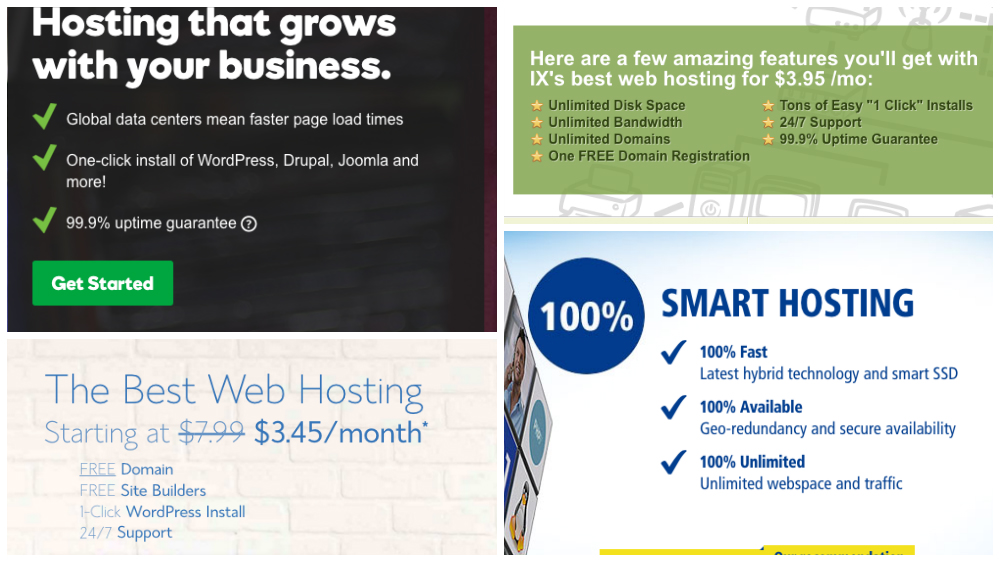
5. What is your unique selling proposition?
After you have taken a look around the marketplace, try to develop some sort of a magnet that will pull in customers, i.e. a unique selling proposition (USP) that will make you shimmer in the ocean of web hosting providers.
You could stake on low prices or strengthen your customer service skills. Or draw attention to your ‘unlimited’ capabilities:
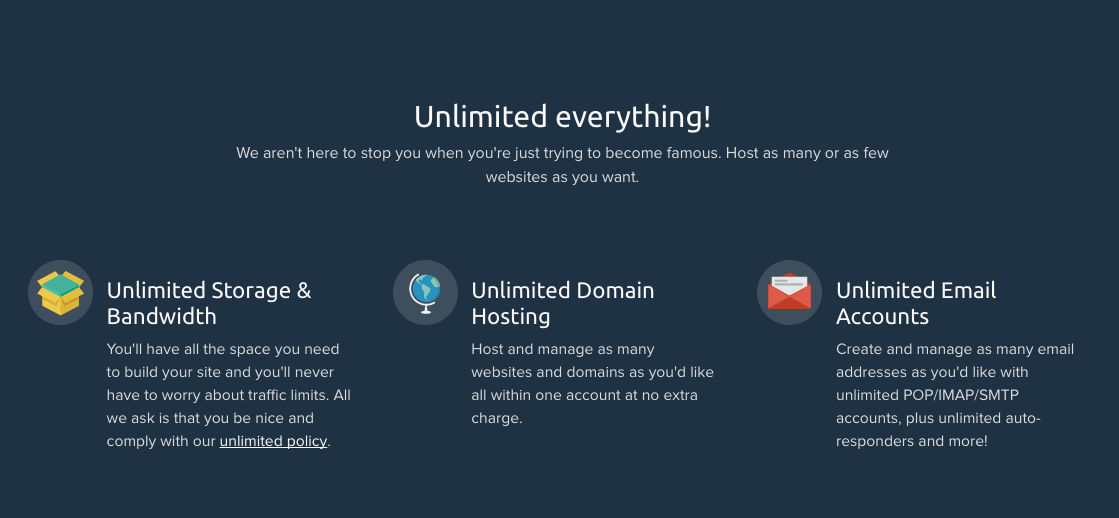
Web hosting is a really flexible service, which allows you to combine it with other digital services.
For instance, if you are a web designer, you could successfully supplement your portfolio with an attractive web hosting offer:
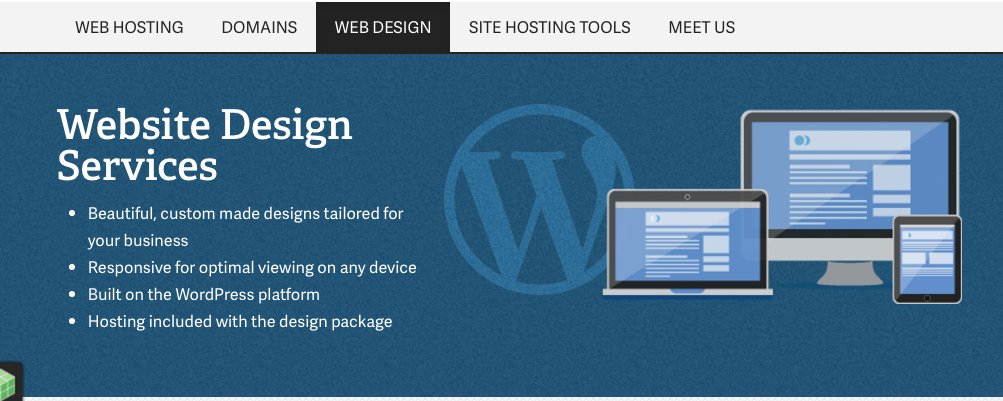
Digital marketers and graphic designers could also complement their offerings with a fully fledged web hosting service.
6. Build a trustworthy brand name
When you jump into the web hosting market, you need to leave your anonymity behind right from the start. Building a brand identity is a complex process, which includes a handful of steps.
Start off by defining your brand name because this will be your unique identifier on the market.
You will also need a nice-looking logo and a favicon to make your brand graphically distinguishable.
Make sure your domain and logo include your brand name as well:
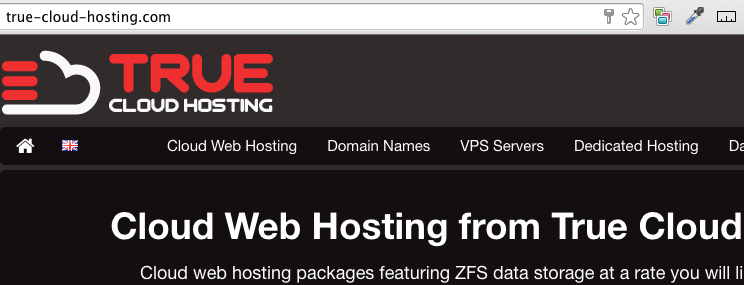
Adding a slogan, which reflects your unique selling proposition would help amplify your brand message.
If you have your own domain featuring your brand name, make sure you create email addresses with it so as to add a more personal touch, instead of using generic terms like “office”, “sales” or “support”.
7. Go local before going global
It will be much easier to make a breakthrough by attracting customers that you know or are in your general vicinity.
A lot of customers have already grown weary of faceless hosting corporations and will settle for someone they know and can easily get hold of.
Check if there are local companies that need hosting services, post ads in community centers or see if your friends or relatives need a website.
Going local can also do wonders if your customers are happy and go on and spread the word about you.
This way, you can build a small & loyal customer base right from the start.
8. The customer service can make or break your business
Today, switching between hosts is really simple, so no one will hesitate to move to a new host if the current one is just not up to par.
This is why, you have to focus your efforts on keeping your customers happy with your services.
If you are in charge of the customer service itself – dedicate more time on your customers and try to answer all their questions as quickly as possible.
If you have a cPanel reseller hosting account, you can always ask the provider for assistance.
If your hosting provider is in charge of the customer support provision, don’t rely 100% on that and try to get in touch with your customers from time to time – ask them how they rate the service or if they are happy.
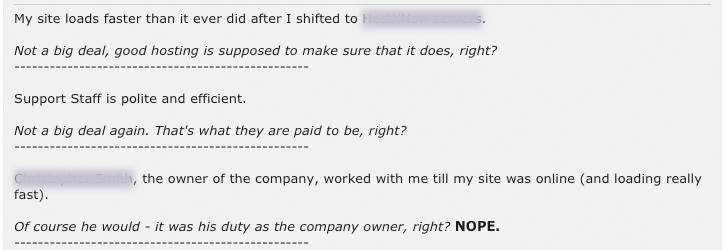
Adding a personal touch to the support service is valued highly by customers.
Even if there is a problem with your service, the unhappy customers will be happy to know that you care about them and will do your best to find a solution to the problem they are facing, so make sure you keep in touch with your clients.
9. SEO optimization is a great long-term strategy if done right
If done right, SEO optimization can lead new customers to your website.
If you have already dipped a toe into SEO, you can do it yourself with some help from the tons of SEO tutorials that are available on the web.
If you don’t know anything about SEO, start learning the basics as soon as you can. In the meantime, hire someone to help you optimize your site.
Here are some great SEO resources for beginners:
- Moz’s Beginner’s Guide to SEO
- The Begginer’s Guide to Online Marketing
- SEO Guide by KISSMETRICS
- What is SEO?
Here you can get the latest SEO stories on the web:
10. PPC ads can be great, but be careful with how much you spend
Pay-per-click ads can be a great traffic source, but you have to carefully consider your bids, as the more generic keywords have higher CPC rates and limited exposure.
Check for keywords with commercial intent (“buy web hosting” is a keyword with high commercial intent, “best web hosting” is a keyword with lower commercial intent) and analyze what the competition is doing, what the ad copy they are using is like, etc.
Most likely, they have a whole department in charge of that and chose a copy that had been proven to allure customers.
11. To get more customers, go where they go
Get ahead of things and don’t wait for customers to come to you. Get to know your customer base and go where they go.
Check the forums they are using, the Facebook groups they are part of, the blogs they read, the places they gather in.
Join their community and build a relationship with them. It’s important to participate with either your real or your business name.
12. Create a blog to add fresh content to your site
When you have a commercial website, there is a certain limit to the kind of content you can post there, as you don’t want to flood your main website with pages that can distract your visitors.
Set up a blog where you can create posts that can drive traffic with non-commercial keywords and pages to which you can build backlinks from other websites.
This will increase your website’s authority and you will see a boost in its search engine ranking as well.
Every serious web hosting provider has its own blog where they keep their customers updated with the latest news on their company and also post regular helpful articles:
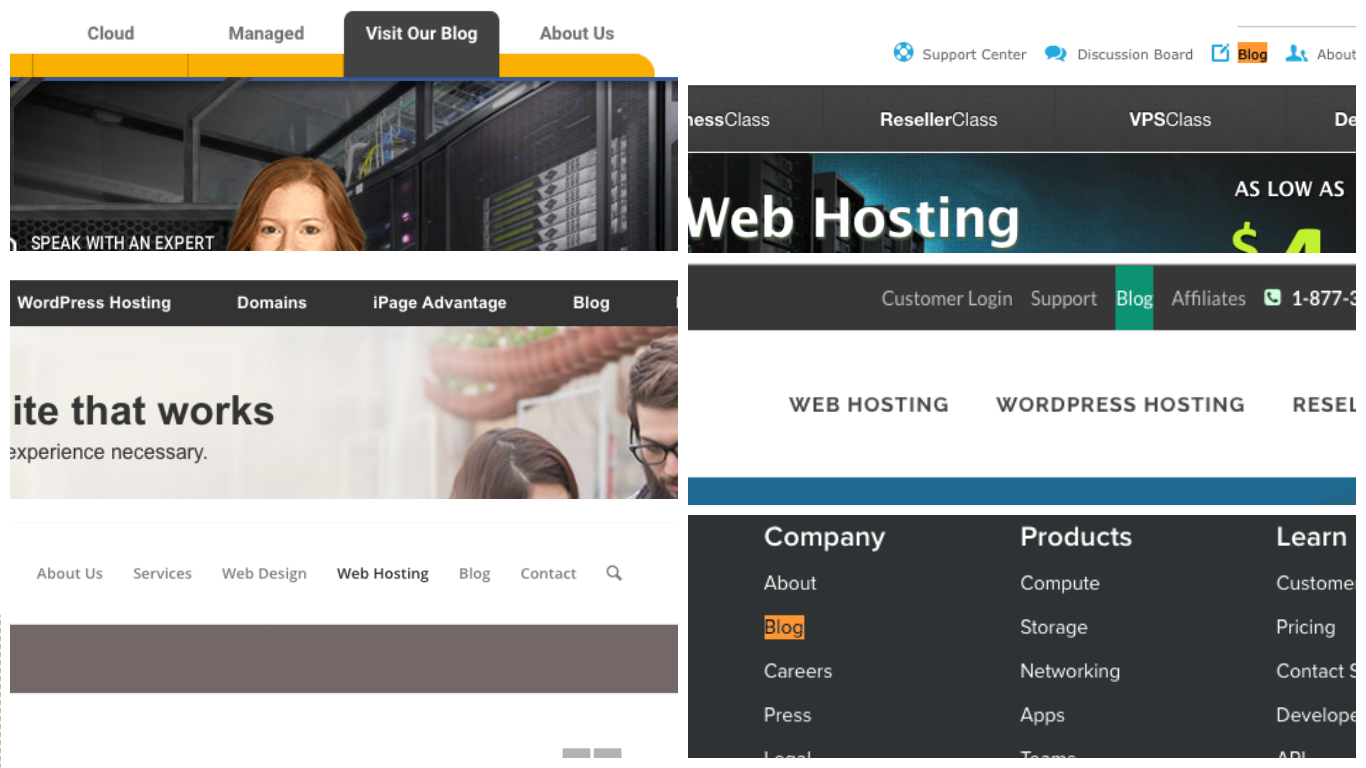
You can keep track of our blog to get the latest updates on our platform and spread the news throughout your community.
13. Partner with popular brands to build a more trustworthy brand name
Since you are yet to establish your name on the hosting market, you could add ‘early’ credibility to your brand by partnering with some of the biggest names in the industry.
There are tons of affiliate programs through which you can draw customers to your partners and get a decent affiliate share for that.
For instance, InternetMedia – a popular provider of various cloud services, will give you a solid commission every time a customer of yours makes a purchase.
Popular platforms like Kentico also have highly valued partnership programs, which you can join and spread the word about in exchange for a decent profit:
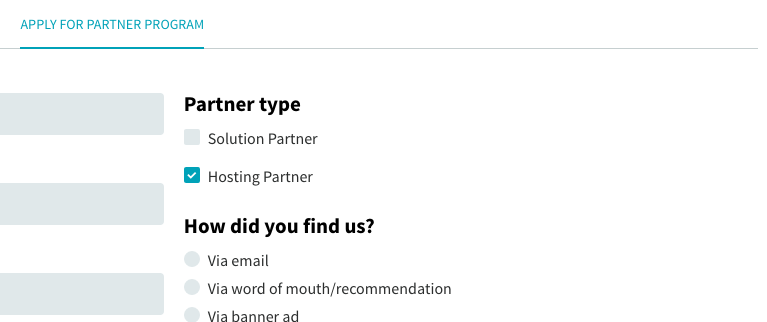
You can even get your brand featured on their list of partners, which would be a great testament to your professionalism.
Also, plugins like CloudFlare would be a perfect addition to your web hosting portfolio and their logo on your site would make a big difference to prospects searching for high-speed solutions:
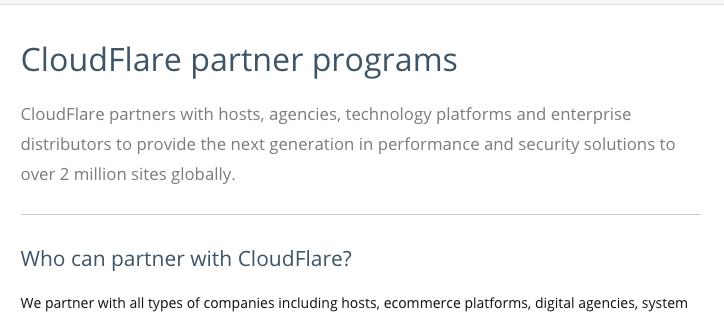
***
Starting a reseller hosting business may be tough at the beginning, but it will pay back double if you take the time to evaluate your capabilities and resources and find the right business approach for you.
Business opportunities in this ever-evolving market are just endless, so hurry up and claim your spot by setting up a unique web hosting brand from scratch.
Originally published Friday, August 19th, 2016 at 2:06 pm, updated July 8, 2024 and is filed under Reseller Hosting.Tags: reseller hosting, reseller, reseller web hosting, web hosting, free reseller hosting, cPanel Reseller Program, hosting reseller, cPanel reseller


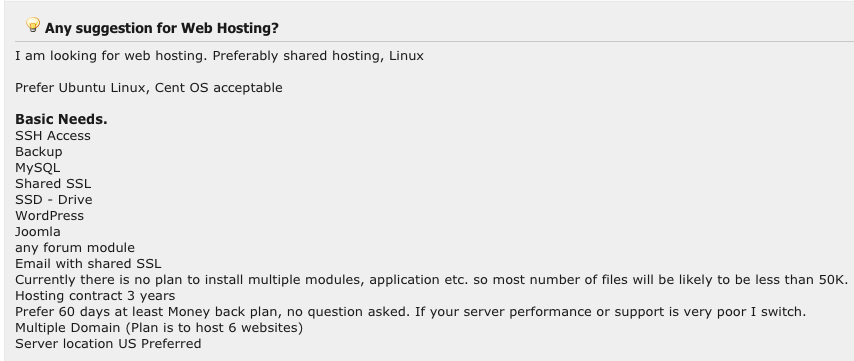
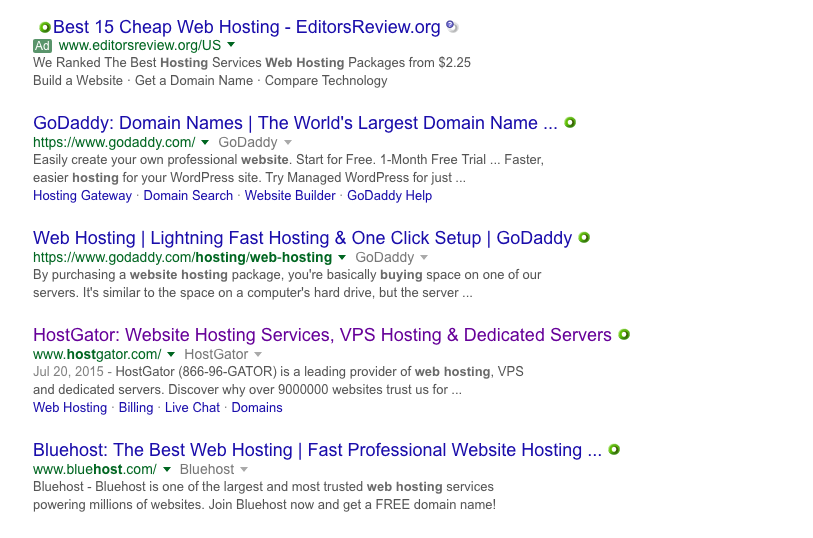
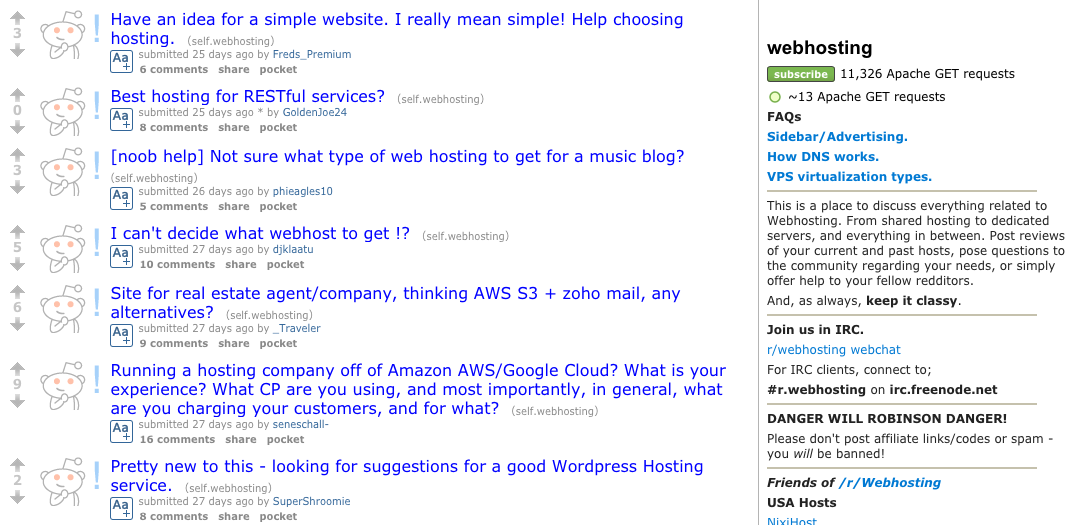
Leave a Reply